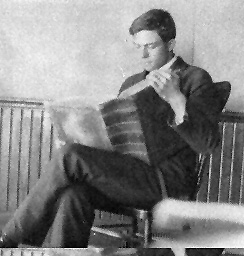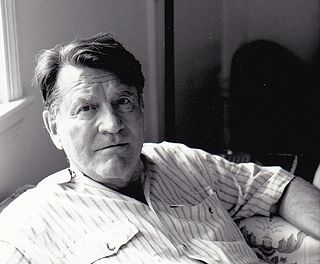Hypnotherapy, also known as hypnotic medicine, is the use of hypnosis in psychotherapy. Hypnotherapy is generally not considered to be based on scientific evidence, and is rarely recommended in clinical practice guidelines. Reviews by psychologists have found hypnosis to be effective as an adjunctive treatment for a range of conditions, such as chronic and acute pain, irritable bowel syndrome, post-traumatic stress disorder, phobias and eating disorder. ”It is regarded as a type of alternative medicine.
Psychotherapy is the use of psychological methods, particularly when based on regular personal interaction, to help a person change behavior, increase happiness, and overcome problems. Psychotherapy aims to improve an individual's well-being and mental health, to resolve or mitigate troublesome behaviors, beliefs, compulsions, thoughts, or emotions, and to improve relationships and social skills. Numerous types of psychotherapy have been designed either for individual adults, families, or children and adolescents. Some types of psychotherapy are considered evidence-based for treating diagnosed mental disorders; other types have been criticized as pseudoscience.

Milton Hyland Erickson was an American psychiatrist and psychologist specializing in medical hypnosis and family therapy. He was the founding president of the American Society for Clinical Hypnosis. He is noted for his approach to the unconscious mind as creative and solution-generating. He is also noted for influencing brief therapy, strategic family therapy, family systems therapy, solution focused brief therapy, and neuro-linguistic programming.
Richard Wayne Bandler is an American writer, consultant, and public speaker in the field of self-help. With John Grinder, he founded the neuro-linguistic programming (NLP) approach to psychotherapy in the 1970s, which is considered pseudoscience.
Dance/movement therapy (DMT) in USA and Australia or dance movement psychotherapy (DMP) in the UK is the psychotherapeutic use of movement and dance to support intellectual, emotional, and motor functions of the body. As a modality of the creative arts therapies, DMT looks at the correlation between movement and emotion.
Integrative psychotherapy is the integration of elements from different schools of psychotherapy in the treatment of a client. Integrative psychotherapy may also refer to the psychotherapeutic process of integrating the personality: uniting the "affective, cognitive, behavioral, and physiological systems within a person".
Past life regression (PLR), Past life therapy (PLT), regression or memory regression is a method that uses hypnosis to recover what practitioners believe are memories of past lives or incarnations. The practice is widely considered discredited and unscientific by medical practitioners, and experts generally regard claims of recovered memories of past lives as fantasies or delusions or a type of confabulation. Past-life regression is typically undertaken either in pursuit of a spiritual experience, or in a psychotherapeutic setting. Most advocates loosely adhere to beliefs about reincarnation.

Jay Douglas Haley was one of the founding figures of Problem-solving brief therapy and family therapy in general and of the strategic model of psychotherapy, and he was one of the more accomplished teachers, clinical supervisors, and authors in these disciplines.
Ian Kerner is an American sex counselor, practitioner of psychotherapy, and author on pleasuring sex partners. He works in sex therapy and couples therapy.
Helen Lorraine (Cook) Erickson is the primary author of the modeling and role-modeling theory of nursing. Her work, co-authored with Evelyn Tomlin and Mary Ann Swain, was published in the 1980s and derived from her experience in clinical practice. In 2006 she edited a book that provides additional information describing the relationships among soul, spirit, and human form.

Ivan Tyrrell is a British educator, writer, and artist. He lives with his wife Véronique in the Cotswolds, England.
Jeffrey K. Zeig, is a writer, teacher and practitioner of psychotherapy. He has edited, co-edited, authored or coauthored more than 20 books on psychotherapy that appear in fourteen languages. He organises several conferences on psychotherapy, and is the founder and director of the Milton H. Erickson Foundation.

Giorgio Nardone is the Director of the Post Graduate School of Brief Strategic Psychotherapy, located in Arezzo, Italy and of the School of Managerial Training in Communication and Strategic Problem Solving, located in Arezzo and also in Florence, Italy. He is the co-founder, along with Paul Watzlawick, of the Centro di Terapia Strategica where he conducts work as a psychotherapist, professor, and researcher. He has authored and co-authored close to 27 publications, including many of his books which have translated from Italian into English, Spanish, French, Russian, and Japanese.

Stephen R. Lankton, MSW, DAHB is a psychotherapist, consultant, and trainer. He is the current Editor-in-Chief of the American Journal of Clinical Hypnosis (2005–2025). He is a recipient of the American Society of Clinical Hypnosis' "Lifetime Achievement Award" and “Irving Sector Award for Advancement of the Field of Hypnosis”. as well as the Milton H. Erickson Foundation “Lifetime Achievement Award for Outstanding Contributions to the Field of Psychotherapy.”

Michele Weiner-Davis is a licensed clinical social worker, marriage and family therapist and author in the field of family therapy. She is frequently quoted in the media and has been interviewed significantly on television news programs regarding divorce prevention. Weiner-Davis has often been referred to as The Divorce Buster after coining the term “divorce busting” at an American Association for Marriage and Family Therapy conference in 1989. She currently writes a regular column, Divorce Busting: Musings From an Unabashed Marriage Saver in Psychology Today.

Richard Fisch (1926–2011) was an American psychiatrist best known for his pioneering work in brief therapy.
Cloé Madanes is an Argentine psychologist with an educational background specialising in family and grief therapy. She worked along with Tony Robbins to train strategic interventionists in finding solutions to resolve interpersonal conflict, prevent violence, and contribute to the creation of a more cohesive and civil community.
Michael D. Yapko is a clinical psychologist and author, whose work is focused on the areas of treating depression, developing brief psychotherapies and advancing the clinical applications of hypnosis.
Jerrold Lee Shapiro is an American clinical psychologist and professor in the Santa Clara University Counseling Psychology graduate program. He is a licensed clinical psychologist and a Fellow of the American Psychological Association.

Hypnoanalysis is the technique of using hypnosis in the practice of psychoanalysis and psychotherapy. It attempts to utilize the trance state induced by hypnosis to effect a conscious understanding of a person's unconscious psychodynamics.








